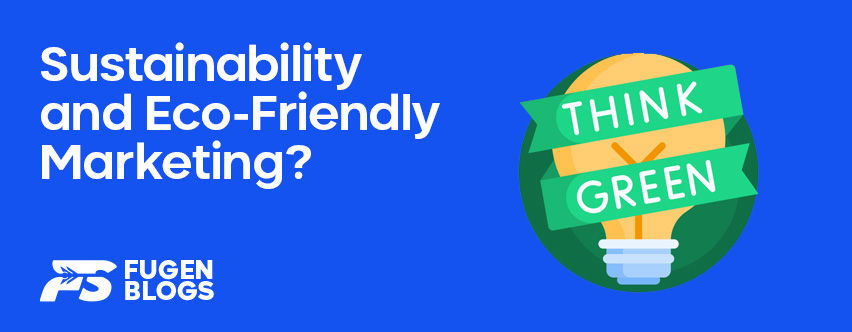In today’s world, consumers are increasingly concerned about the environment and the impact of their purchasing decisions. As a result, businesses are shifting towards sustainability and eco-friendly marketing practices to meet the growing demand for environmentally responsible products and services. In this blog, we will explore the importance of sustainability in marketing, its impact on businesses and the environment, and how eco-friendly marketing can create a positive impact.
Table of Contents
The Significance of Sustainability in Marketing:
Sustainability in marketing refers to promoting products or services that are produced, packaged, and distributed in ways that minimize environmental impact. By incorporating sustainable practices into their marketing strategies, businesses can attract eco-conscious consumers, improve brand reputation, and contribute to a greener future.
Impact on Businesses and the Environment:
- Consumer Attraction: Sustainability is becoming a key factor in consumer decision-making. Studies show that a significant percentage of consumers prefer to support brands that are environmentally responsible and sustainable.
- Competitive Advantage: Embracing eco-friendly marketing can provide businesses with a competitive edge in the market. It differentiates brands and positions them as responsible and forward-thinking.
- Resource Efficiency: By adopting sustainable practices, businesses can optimize their resource usage, leading to cost savings in the long run.
Eco-Friendly Marketing Strategies:
- Green Product Labeling: Clearly communicate the eco-friendly features and benefits of your products through green product labels and certifications.
- Transparent Supply Chain: Provide visibility into your supply chain and highlight efforts to reduce carbon footprint and promote fair labor practices.
- Digital Marketing: Utilize digital channels for marketing and communication to reduce paper waste and carbon emissions associated with traditional advertising.
Comparison Table: Traditional Marketing vs. Eco-Friendly Marketing
| Aspect | Traditional Marketing | Eco-Friendly Marketing |
|---|---|---|
| Focus | Primarily focused on product promotion | Focus on sustainability and eco-friendliness |
| Impact | May contribute to environmental issues | Promotes environmentally responsible practices |
| Consumer Perception | Less appealing to eco-conscious consumers | Attracts eco-conscious consumers and strengthens brand reputation |
| Long-term Sustainability | May not align with long-term environmental goals | Aligns with sustainable development objectives |
Stats on Eco-Friendly Marketing:
- According to a study by Nielsen, 81% of global consumers feel strongly that companies should help improve the environment.
- A survey by Unilever found that one-third of consumers prefer to buy from brands that prioritize sustainability.
FAQs:
Q: Is sustainability limited to certain industries?
A: No, sustainability and eco-friendly marketing practices can be implemented across various industries, from consumer goods to services.
Q: How can small businesses adopt eco-friendly marketing practices?
A: Small businesses can start by making simple changes, such as using recyclable packaging, reducing energy consumption, and promoting sustainable initiatives.
Q: Can eco-friendly marketing positively impact a company’s bottom line?
A: Yes, eco-friendly marketing can lead to increased customer loyalty and trust, potentially resulting in higher sales and brand loyalty.
Conclusion:
Sustainability and eco-friendly marketing are vital for businesses aiming to meet consumer demands, protect the environment, and remain competitive. By integrating sustainable practices into their marketing strategies, businesses can attract eco-conscious consumers, build brand loyalty, and contribute to a greener future. Adopting eco-friendly marketing is not only a responsible choice but also a strategic one, fostering positive environmental change and securing long-term business success. As consumers continue to prioritize sustainability, embracing eco-friendly marketing is no longer just an option; it is a necessity for businesses to thrive in a rapidly evolving marketplace.


Leave a Reply